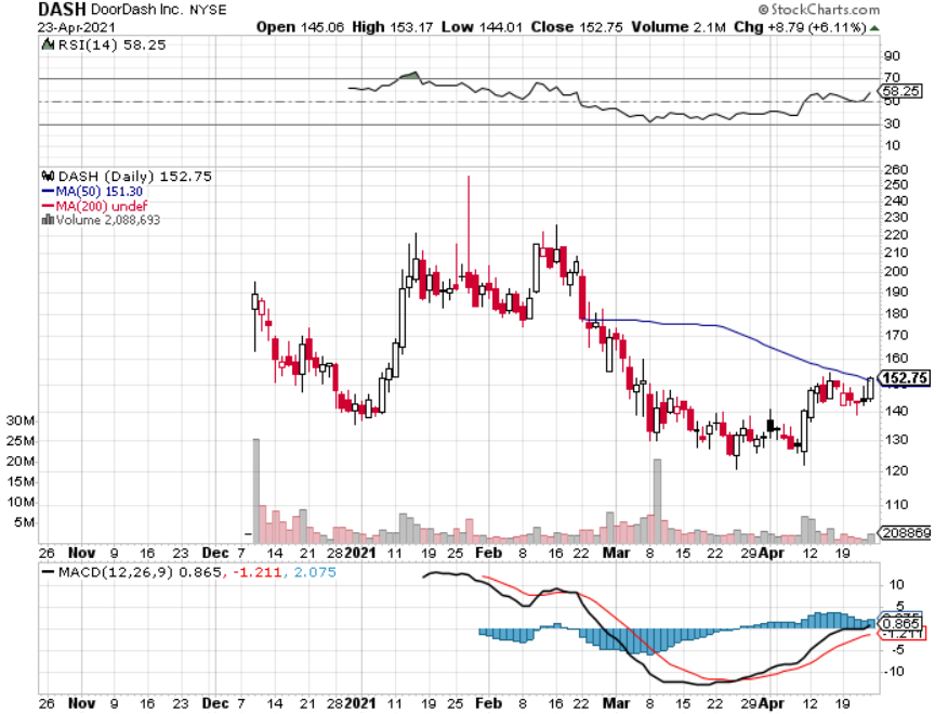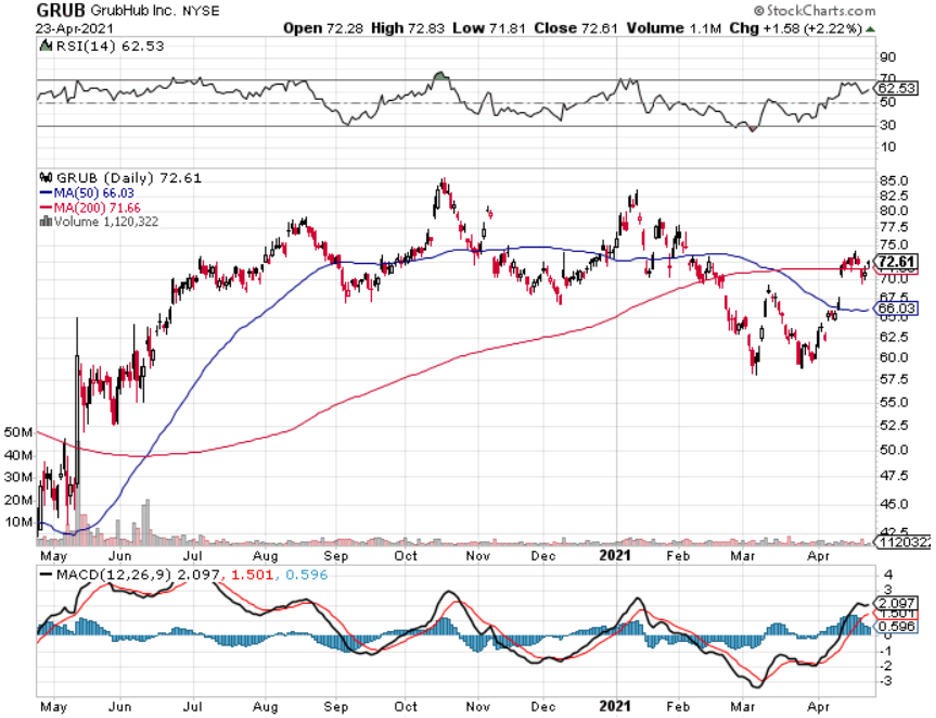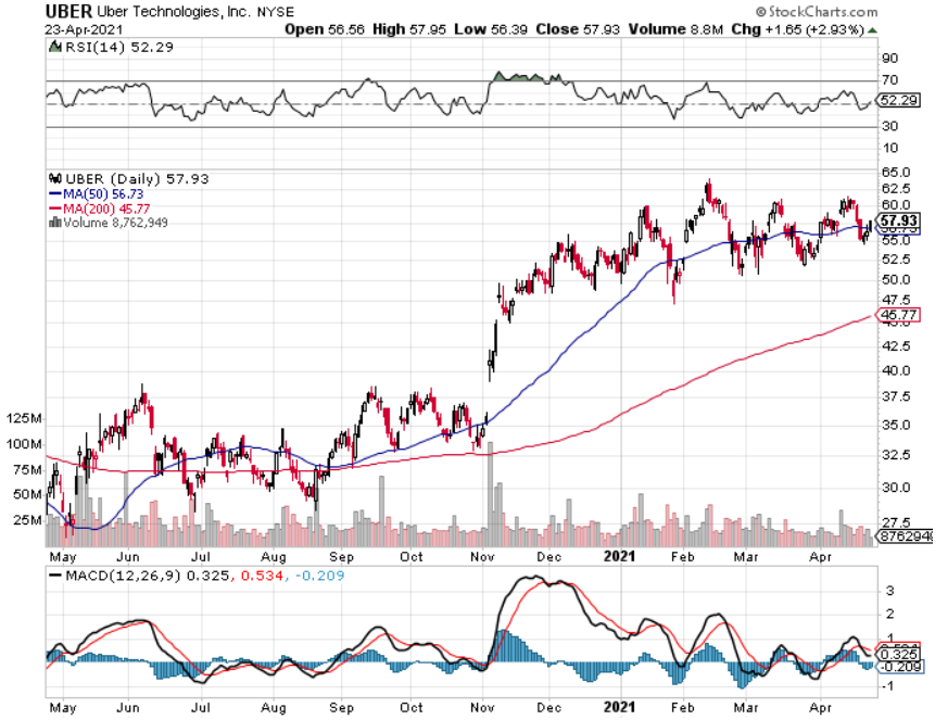Buy or Sell DoorDash?
As the work from home economy de-levers, the biggest loser of this trend will be the food delivery company DoorDash (DASH).
As the stock rallied last Friday by 6% into the close, I couldn’t help but think to myself that it is a great time to short the stock.
Considering that total sales grew close to 400% last year but the stock is lower, this basically means that DASH couldn’t deliver what shareholders wanted in a historic year for most tech companies.
What makes anyone think that 2021 will be different?
Imagine what the next phase of development looks like, quite bleak.
The health crisis unlocked a tsunami of growth for many emerging and unprofitable technologies.
Software and hardware companies were clear beneficiaries of economic lockdowns that triggered a boom in the food delivery industry.
With nowhere to eat out at, the business of eating a prepared meal was effectively handed to DoorDash on a silver spoon.
Despite this powerful tailwind, the company still failed to deliver positive earnings amid additional expenditure such as marketing.
As the pandemic navigates towards a solid solution and consumers return to restaurants, DoorDash will be left holding the bag.
First, let me say, DoorDash’s operating narrative is weak.
They earn revenue by taking a percentage of restaurant sales on its platform.
A glorified pizza delivery boy at scale is what they really are.
They describe sales as marketplace gross order value or GOV which totaled $24.66 billion in 2020 — a 326% increase over 2019.
In short, it's the total amount of money that DoorDash users paid for food.
For context, this metric grew 187% in 2019 compared to 2018, but off a much lower base from $2.8 billion and now project marketplace GOV in 2021 in the range of $30 billion to $33 billion, which is a substantial deceleration in growth rate from 2020.
The bottom line is they are still losing around the same amount of money with no solution in sight.
The next steps of the global economies are to open further, with fewer people staying home and using food delivery, so the question is whether the DoorDash marketplace will grow at all this year.
Despite a record 2020 that more than quadrupled the company's revenues, it is becoming clear that DoorDash will not even be close to profitable.
It appears DoorDash's growth in costs tracked closely with growth in revenue, in dollar terms, leading to net losses that only marginally improved.
The main thesis of these gig economies is that they become incrementally profitable at scale, but DoorDash’s financials suggest it isn’t.
I would like to hear what the next way forward is, but the firm is essentially a one-trick pony in a hopeless industry.
If interests tick higher and regulation toughens, this stock will get hit hard.
There are too many tech firms in the food delivery space and consolidation will force management’s hand.
Uber Eats is the reason that DASH won’t be able to raise prices.
DoorDash holds an advantage with 55% of the US market, but both Uber Eats (at 21%) and GrubHub (GRUB) (at 16%) have made aggressive acquisitions to help them grab market share.
All of these companies often mirror age products with no differentiation.
It is a very homogenized product.
Uber Eats has the largest global footprint in the industry, with a higher overall gross order value that hit record levels in 2020, yet that company loses money like DASH.
GrubHub also delivers the same terrible unit economics that DASH does, giving investors higher revenue but marginal margin improvements and profitability.
Companies that cannot become profitable when 4X their revenue need to be overlooked and this statement could cut across all industries from energy to retail.
Imagine that Dash also couldn’t improve unit economics when gas prices cratered as well.
It appears that Dash will have most external forces working against them for the rest of the year and this is a great stock to sell rallies on.
The initial peak of $230 could well become the peak for this stock and the current share price is 1/3 lower, but I believe a fair market cap would be half the peak of $230 in 2021.






